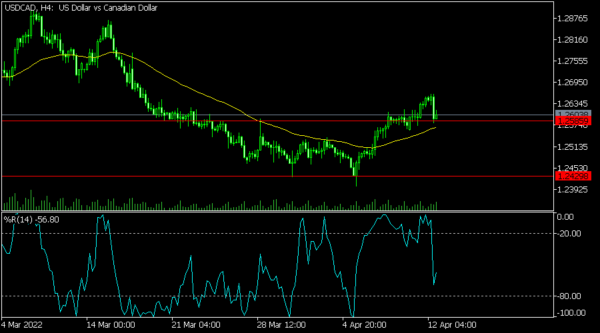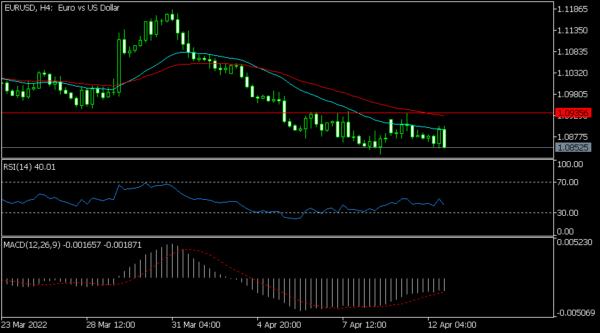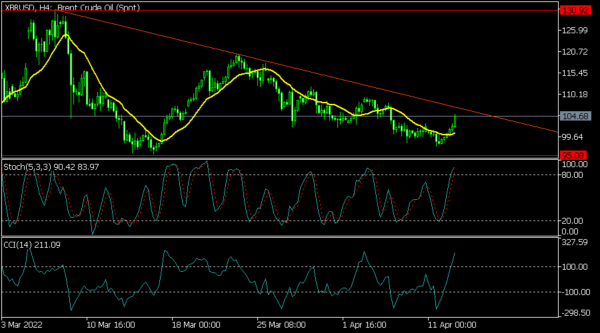US stocks erased earlier gains after the Bureau of Labor Statistics published high inflation data. The Dow Jones fell by 156 points after rising by over 200 points earlier. The tech-heavy Nasdaq 100 index retreated by over 90 points while the CBOE VIX rebounded by over 1%. Data showed that the headline consumer inflation rose by 8.5% in March as oil and gas prices surged. Excluding food and other volatile products, inflation rose by 0.3%, the lowest increase since September last year. It advanced by 6.5% on a year-on-year basis. Stocks and cryptocurrency prices rose as investors anticipated that the Fed will not need to tighten as aggressively as earlier expected.
The price of crude oil rose in the overnight session after OPEC reduced its forecast for global growth. The cartel warned that demand will slow because of the ongoing crisis in Ukraine. It expects that the economic growth for the year will be 3.9% from the previous 4.2%. It slashed its forecast for Russian oil production by 530k barrels to about 10.8 million barrels. It also expects that US production will boost its production by 261k barrels to 17.75 million barrels. The price will react to the upcoming US inventory data by the Energy Information Administration.
The economic calendar will have some important events on Wednesday. Earlier, the Reserve Bank of New Zealand (RBNZ) decided to boost its interest rates from 1.0% to 1.25%. The bank attributed this boost to the need to slow the rising inflation. China published the latest trade numbers while Japan released the most recent core machinery order data. Other important events will be the US consumer and producer inflation numbers and the latest interest rate decision by the Bank of Japan and UK consumer inflation data.
USDCAD
The USDCAD pair declined sharply after the latest US consumer inflation data. It fell to a low of 1.2600, which was lower than this week’s high of 1.2662. On the four-hour chart, the pair retested the important support level at 1.2585, which was the highest level on March 28. It has moved slightly above the 25-day moving average while the Williams %R has moved from the overbought level. Therefore, the pair will likely keep falling ahead of the BOC decision.
EURUSD
The EURUSD pair initially rose after the latest US inflation data and then erased some of those gains. It is trading at 1.0853, which was slightly below this week’s high of 1.0935. The pair is slightly below the 25-day moving average while the MACD is slightly below the neutral level. The Relative Strength Index has moved to the neutral point of 45. The pair will likely keep falling today as focus shifts to the upcoming ECB decision.
XBRUSD
The XBRUSD pair rose even after OPEC announced a slowdown in demand. The pair is trading at 104.93, which is slightly below the descending trendline shown in red. It has also formed a descending triangle pattern while the Stochastic Oscillator and CCI have moved upwards. Therefore, the pair will likely resume the downward trend as bears target the lower side of the triangle at 95.08.



